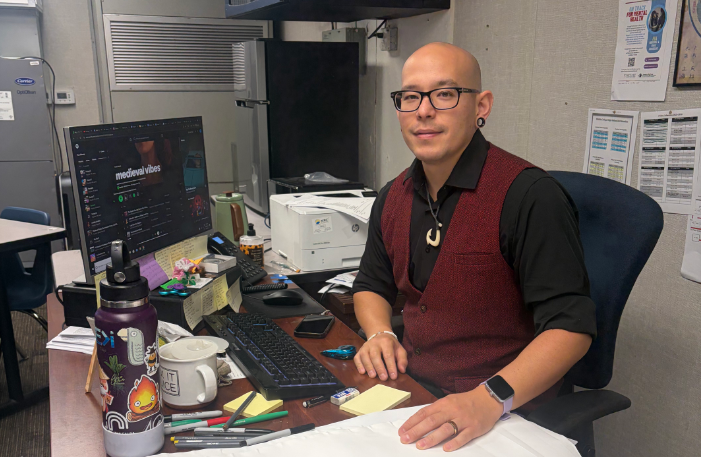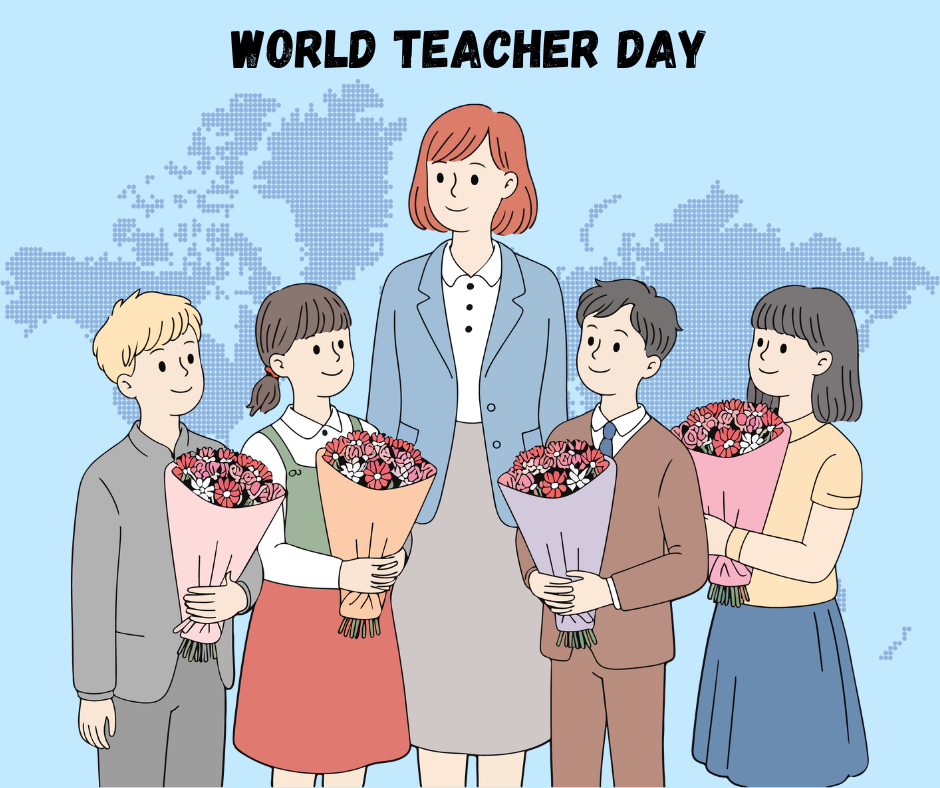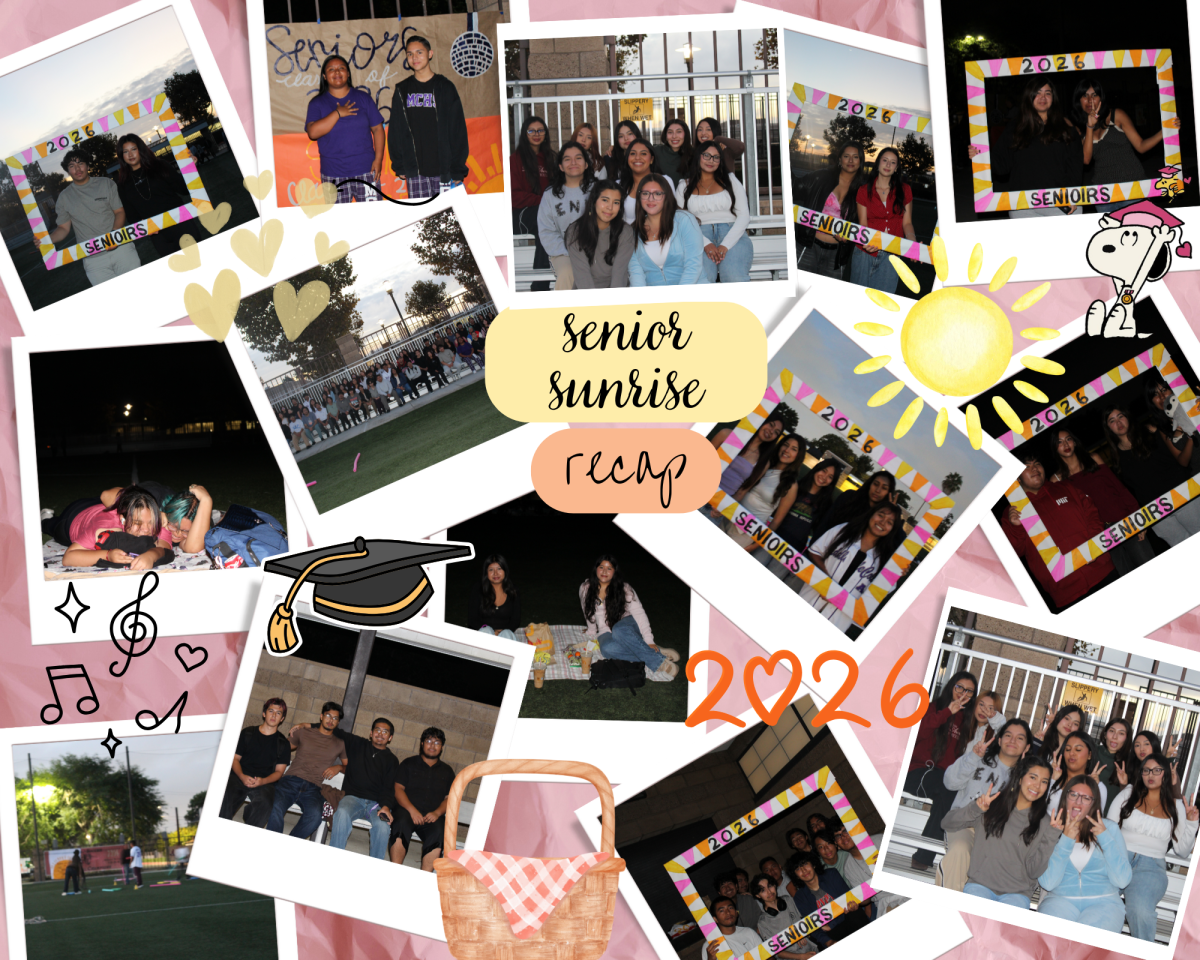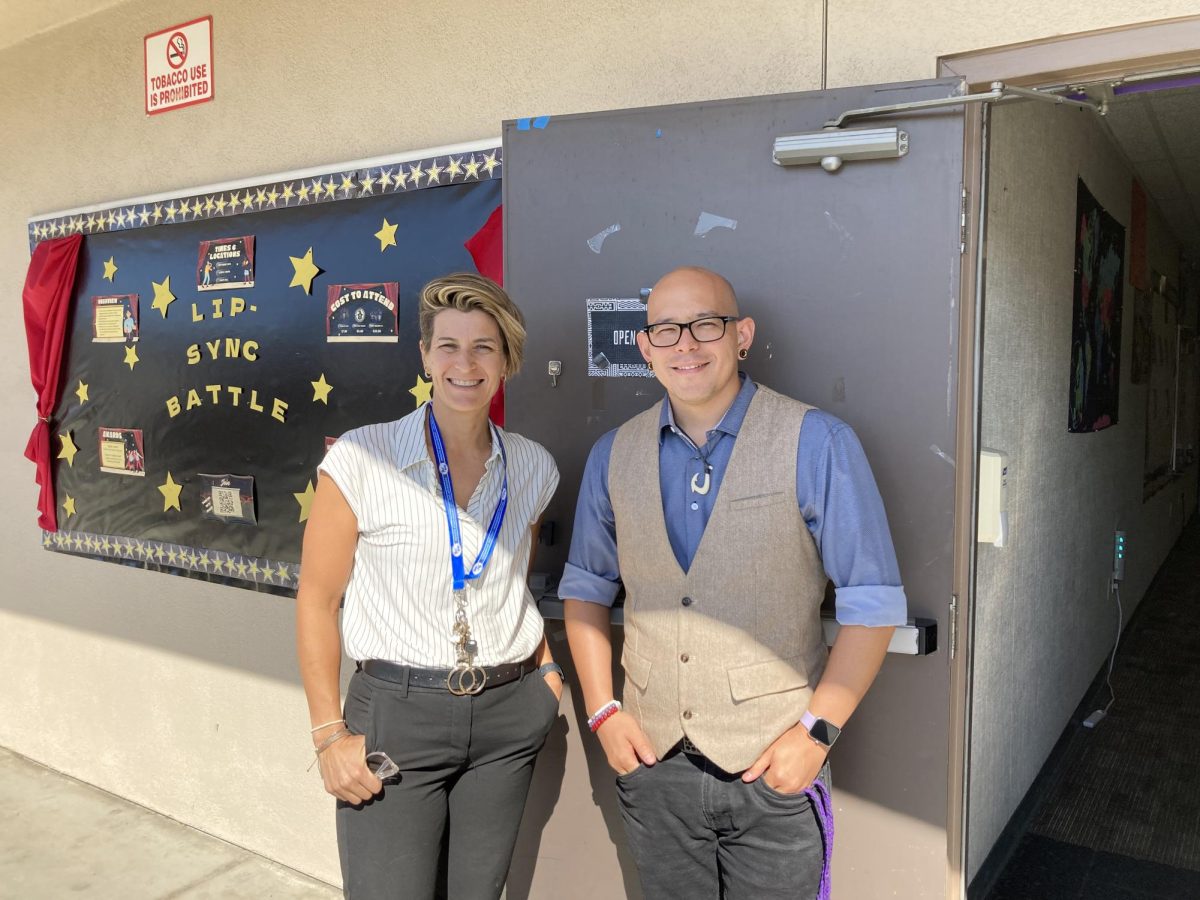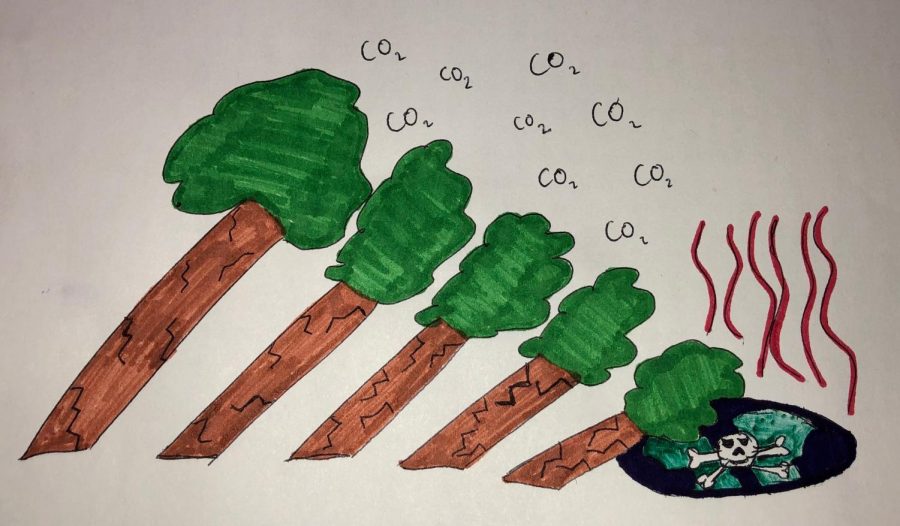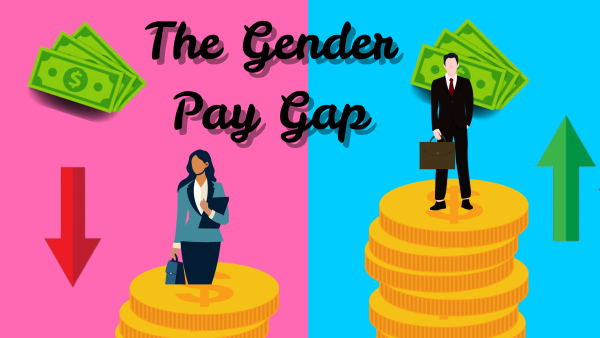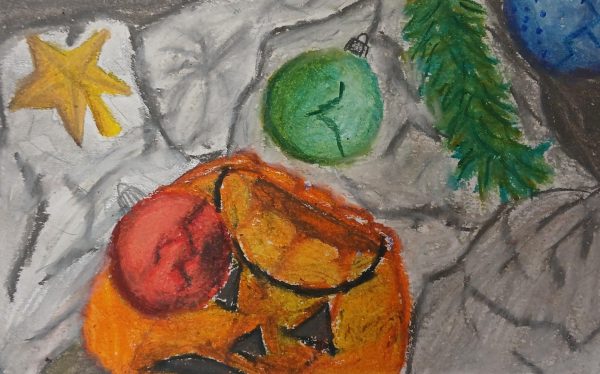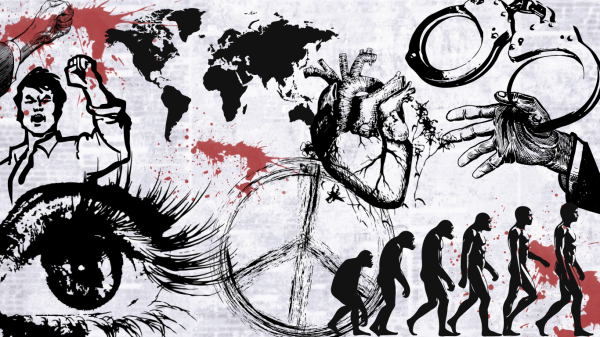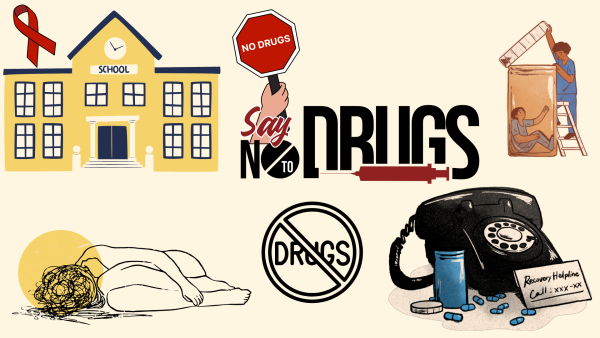Our actions have consequences: the Amazon rainforest is one of them
Our future in a drawing.
The Amazon rainforest, the world’s largest tropical rainforest, is burning as we talk. Since the beginning of this year, 100,000 “fire spots” in the Amazon have been detected, an increase of 45% compared to 2018, according to Earther Gizmodo. What seems to be the biggest concern to scientists is the effect it will have on the regulation of our atmosphere and climate.
The Amazon is the size of 48 US states and covers 2/3 of Brazil, extending into Columbia, Peru, and South American countries. It is home to 1 million indigenous people and 3 million plants and animals.
“In 2016, the agribusiness sector (agriculture inputs, transformation, production and distribution) comprised nearly one-fifth of the national economy,” according to the studies presented by Brazil Productivity Growth Flagship Report. With that said, the Brazil report also documents “…Brazil as a key country to help feed the 9.5 billion people who will live on earth in the next 30 years.”
This demonstrates how the agribusiness demand in Brazil’s commodities encourage the advancement of agricultural production and trade.
The Rainforest Partnership gathered information from Yale School of Forestry and Environmental, concluding, “Brazil alone has 24 to 25 hectares devoted to the production of soy, 80 percent of which would end up as animal feed. These numbers all contribute to the consensus that the primary reason for rainforest deforestation in the Amazon can be attributed to the beef industry.”
Senior Aysha Garcia, said, “I think it is important for us to become more mindful of the earth. It isn’t just planting trees, using less plastic or cleaning up beaches. It’s what we are eating as well. Since the Amazon fires were discovered I’ve seen many petitions, gofundme, etc but I really haven’t seen people willing to reduce their consumption of meat/beef. And I think that’s where we mess up. We are more willing to donate money, or share posts than to lower our consumption of meat when it comes to saving our planet.”
National Geographic states, “Humans might have burned some parts of the Amazon for thousands of years, but the fire records analyzed so far indicate that the scale of forest disturbance in the 21st century is probably unprecedented.”
When asked about her feelings regarding the media coverage this August, Milena Sanchez, a resident in southeastern Brazil said, “It upsets me that environmental-related issues such as this one aren’t given the media coverage they require. Devastation in the Amazon rainforest has always occurred and just now, people are drawing attention to it.”
On August 27, in efforts to aid the damage done, the Group of 7 met in France. They discussed and agreed on providing $20 million in aid to help combat the fire. Trump himself wasn’t present in the meeting concerning climate change, biodiversity, and oceans. His team, however, was and agreed with U.S. alignment on G-7’s contribution to the Amazon fire, according to US News. Jair Bolosaro, president of Brazil, responded with a rejection, refusing to accept the G-7 donation until French President Emmanuel Macron apologized for accusing him of lying. Later, he did accept all foreign aid.
Countries are not the only ones providing aid; many environmental organizations are also supporting the shared fight to save the largest rainforest from turning to ashes. Organizations like the Rainforest Alliance, Rainforest Foundation, Earth Alliance, World Wildlife Fund for Nature, and many more encourage anyone and everyone to donate their money to donation campaigns, or time to sign petitions, or even spread awareness and encourage the protection of the Amazon and its indiginous people.
If we don’t do something about the problem at hand, organizations like Greenpeace warn us of the long term effects: “In addition to increasing emissions, deforestation contributes directly to a change in rainfall patterns in the affected region, extending the length of the dry season, further affecting forests, biodiversity, agriculture and human health.”
It is known that if you think someone else is going to solve a problem, you’re contributing to the problem by not doing anything yourself. So if you want to be part of the solution of deforestation resistance, there are personal adjustments everyone could implement into one’s daily habits, like Aysha Garcia did by becoming vegan. Mother Nature Network suggests: planting a tree, reducing paper usage, recycle and buy recycled products, look for Forest Stewardship Council certification on wood products, and most importantly, eat vegetarian/vegan meals as often as possible.
To further support this, Denise Guiterrez, an environmental engineer, stated, “We live in a fast-paced society that any little thing can eventually gain popularity and gain attention. If we all work on promoting our passion for the environment, we can inspire other people to care and be more empathetic. It is not something that happens over night; we can not reverse the damage that has happened. Instead, we can take action and build a better future.” With the current fast-paced internet, any passionate person could shine awareness to a situation through a hashtag or saying and get it to the trending page. Instead of focusing on celebrity controversies or drama, we should focus on things that will impact our future and the future of our children, the sustainability of the only Earth we have.
To get a visual analogy, remember what happened to the town of Thneedville in The Lorax when the Once-Ler’s greed for the production of thneed led to the deforestation of truffula trees and created a town of wasteland? The future generation of Thneedville, Ted and Audrey, grew up experiencing no natural life, a “place virtually devoid of nature”. That’s the future we are promising our children and grandchildren with the unhealthy habits we have made a norm. We are punishing the next generation with problems we created.
Unless we are willing to change our eco-harmful daily habits to prevent the cutting down of trees that cause the release of carbon dioxide into our atmosphere, we are looking at a domino effect that will lead to a future of repercussions.
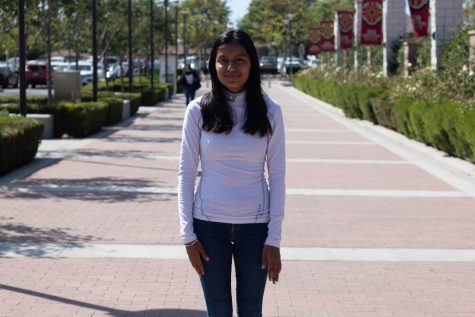
Fun Facts:
I have a cat named Bootz.
Freddie Mercury is da best.
My favorite club is Wizards for Water.

